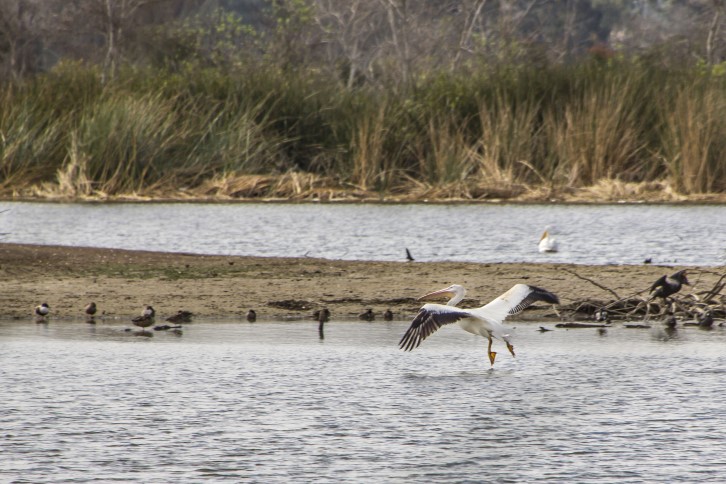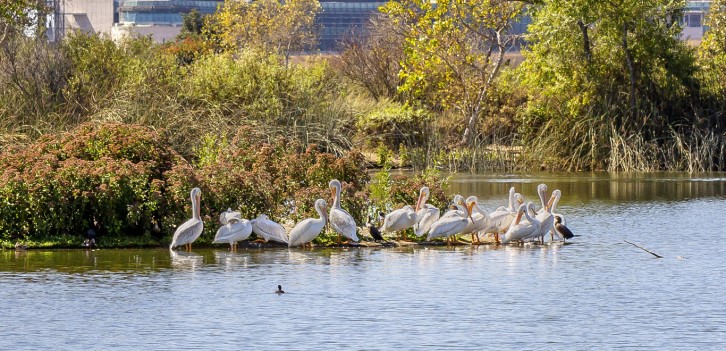-
Published: Nov 19, 2019 | 09:35 AM
Scientists Honor San Joaquin Marsh as California’s Only ‘Wetland of Distinction’
A map of the United States shows a clustering of locator pins in the Northeast and Midwest, but just one solitary marker in California: identifying Irvine Ranch Water District’s San Joaquin Marsh and Wildlife Sanctuary as the only Wetland of Distinction in the state.
The international Society of Wetland Scientists this month named the ecological preserve one of just 32 in the nation to qualify for the honor. Candidates are judged based on biology, ecology, conservation status and public access for high-functioning wetlands. Plants established at the marsh reflect botanical records of the fauna that was present there 150 years ago.
“This is a very prestigious recognition,” said General Manager Paul Cook. “It showcases the significant work that has been done by Irvine Ranch Water District to protect native plant and animal species, create a public oasis and educational center in the midst of an urban community, and to improve the quality of water that flows into the environmentally sensitive Upper Newport Bay.”
Established in 1996, the San Joaquin Marsh is home to a variety of rare, threatened and endangered species, including the Least Bell’s Vireo, Long Eared Owl and Western Pond Turtle. It comprises more than 320 acres, 12 miles of walking trails, and is home to some 230 species of birds, many of which are counted and monitored by Sea and Sage Audubon volunteers.
The marsh is open to the public every day during daylight hours, and hosts educational field trips, tours and other activities conducted by the local Audubon chapter and Discovery Cube Orange County.
“As one of very few freshwater marsh habitats left in the South Coast area, the San Joaquin Marsh provides a crucial habitat for migratory bird species,” said IRWD wetlands scientist Mo Wise.
Yet Wise is most proud of the marsh’s role to naturally clean more than 1 billion gallons of urban runoff annually from San Diego Creek to help protect the Back Bay.
Sunlight in holding ponds deactivates harmful bacteria before it can threaten marine life downstream, and marsh plants and sedimentation help to capture other pollutants. The marsh removes more than 33,000 pounds of nitrogen, 140 pounds of selenium, 36 pounds of copper, 4,929 pounds of trash and 47 tons of sediment each year.
Routine monitoring of water quality, sediment composition, vegetation and wildlife has provided data and insight into best management practices for freshwater treatment wetlands in a region deplete of these crucial natural resources.
“This data provides valuable insight into best management practices for freshwater treatment wetlands in urban communities,” Wise said, adding that researchers from the University of California, Irvine; Concordia University; Chapman University and various local high local high schools also use the wetland system to study biogeochemical processes within coastal freshwater systems.
The Society of Wetland Scientists is an international nonprofit established in 1980 to promote understanding, conservation, protection, restoration, science-based management, and sustainability of wetlands. Criteria for the award include the protection of biologically diverse wetland flora, fauna and their habitat, ecological connectivity, public access and recreation, and water quality improvement.

The marsh's proximity to an urban setting, public accessibility and educational outreach were some of the criteria considered to qualify for the award.

The marsh is home to hundreds of migratory birds species, providing a valuable oasis to them on their journey up and down the coast.




